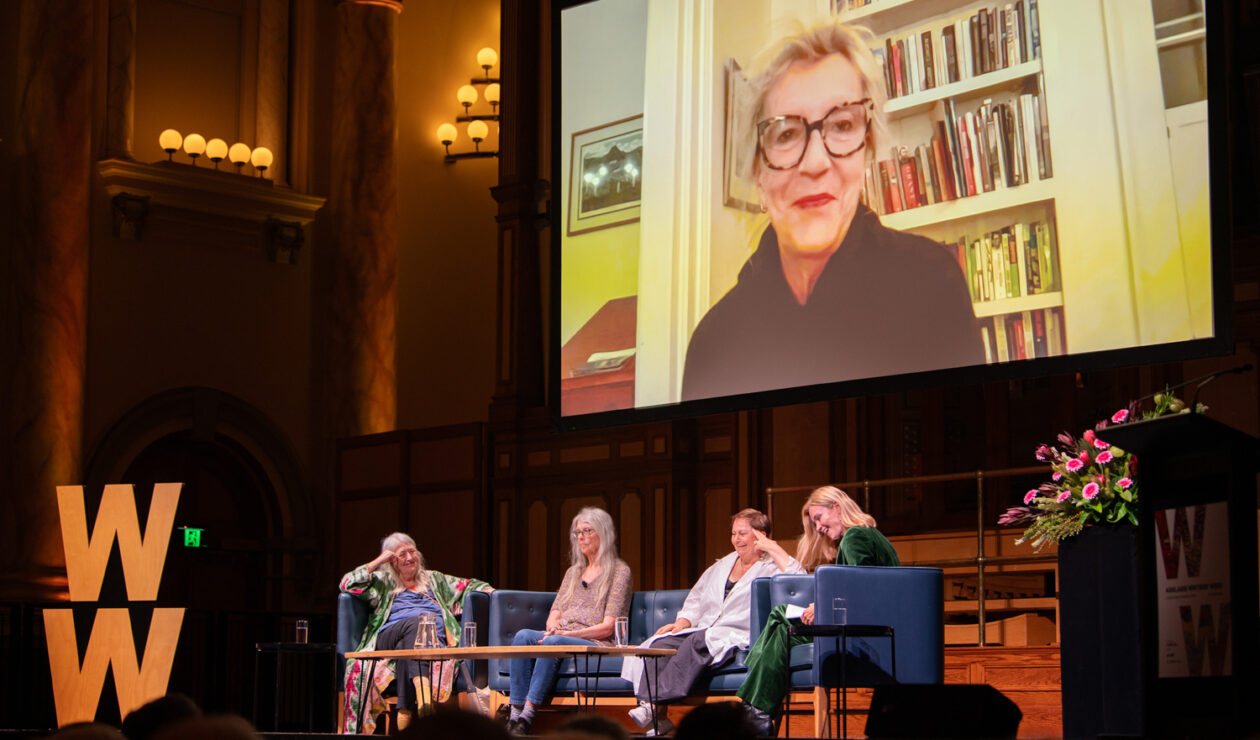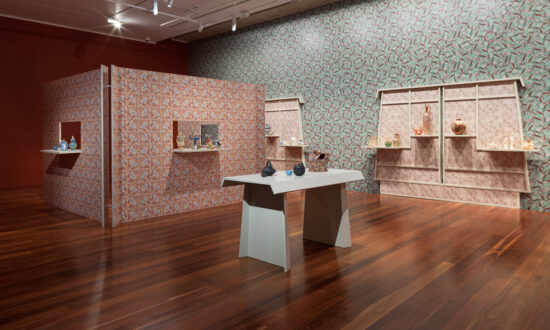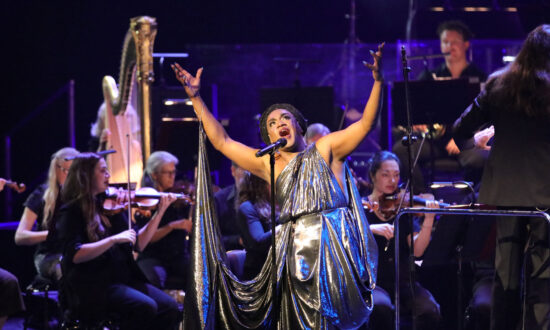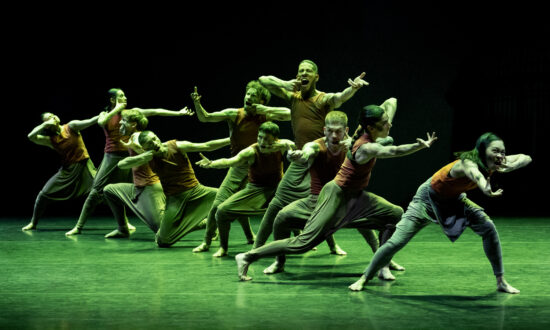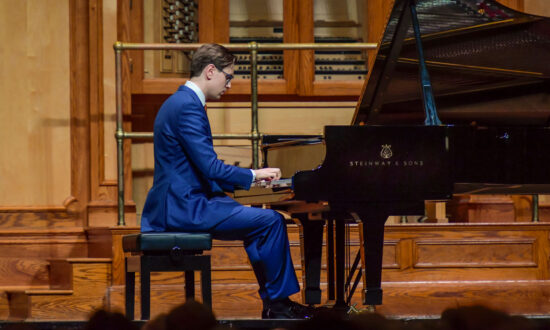Gathered within the Victorian splendour of the Adelaide Town Hall, the crowd’s excitement was palpable. This would be a once-in-a-lifetime experience – four of the most accomplished and respected writers of our time drawn together from across the world. There was not a vacant seat in sight.
Seated on the stage were world-renowned classicist Dame Mary Beard (SPQR, Women & Power, Emperor of Rome), Booker Prize winner and inaugural Irish Laureate Anne Enright (The Gathering, The Wren, The Wren) and Pulitzer Prize winner Jane Smiley (A Thousand Acres, Some Luck, Greenlanders), while joining the on-stage conversation via livestream from the US was Pulitzer-Prize-winning author Elizabeth Strout (Olive Kitteridge, My Name is Lucy Barton, Lucy by the Sea).
Australian author and journalist Julia Baird (Phosphorescence, Bright Shining) chaired The Grandes Dames of Letters conversation, introducing her illustrious panel with the observation that together, these acclaimed writers have gifted readers a total of 72 books.
With decades of experience across multiple literary forms and focussing on time periods from the ancient past to the contemporary age, these are writers working at the peak of their craft. But despite the impressive list of accolades, success has been a far from easy road, with all four women coming of age as writers in a time when male voices in literature were valued and privileged.
Despite their diversity in form and historical focus, Beard, Strout, Enright and Smiley, each in her own way, sought to disrupt the idea of the domestic sphere as a trivial concern, working doggedly to shift the focus of literary and historical imagination and bring the voices hidden in the shadows into the light.
Baird opened the conversation with a query about the role of the writer in this time of conflict. Mary Beard’s familiarity with the views of ancient historians immediately came to the fore, revealing that every time is viewed as an anxious one by those experiencing it. What we need to learn from these ancient sources, Beard observed, is that silence in the face of autocratic rule is collaboration. When we see democracy tottering, we need to put up our hands and shout.
Expanding on this idea, Strout added that living with dread has stiffened her resolve as a writer, deepening her determination to scrutinise the place where our inner lives come into conflict with the world we are living in. It’s this drive to explore what it’s like to be someone else with truthfulness that keeps bringing her back to the page.
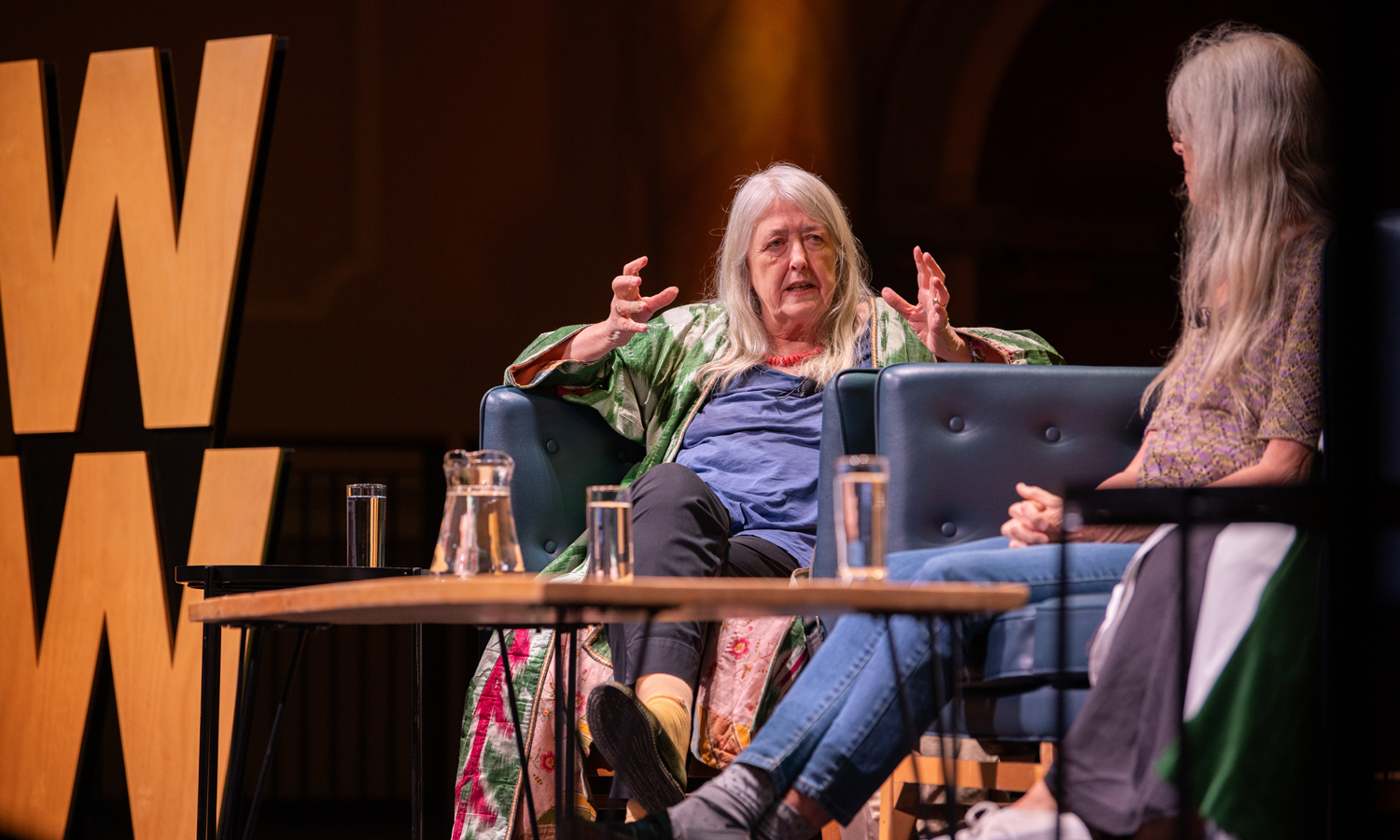
Authors Mary Beard and Jane Smiley. Photo: Morgan Sette
Smiley expanded on the novelist’s goal of empathy, saying her work is fired by the hope that her words might make their way into the hands of readers who are going through hard times and who might, through literary empathy, find something they need.
For an audience packed with book lovers, Strout’s thoughts on the intense intimacy between writer and reader were delicious and Enright’s description of the writer’s precious, private exchange with the reader raised the hairs on this reader’s arms. Enright went on to mention the benefits of deep reading and the concomitant dangers of skimming (or, god forbid!) online scrolling, citing neurological research that showed parts of the brain firing in appreciation of a perfectly landed metaphor.
Given their enduring careers, Baird was keen to explore the ideas and topics that have sustained each of the participants as writers. Smiley’s anecdotes about the pleasures of spying and eavesdropping provoked laughter, before her more sober response that learning about the mystery of others’ lives through the recording of individual consciousness is what the novel as a literary form brings to the world.
Beard described the profound experience of human connection through time when she rocked a cradle holding a tiny skeleton in Pompeii that had not been touched by human hands for 2000 years. She then expressed her awe at the skill of her panel colleagues, since for Beard it was difficult enough to reconstruct the lives of people who existed in the past, so she could only imagine the challenge of constructing fully fleshed lives that had never existed at all.

Get InReview in your inbox – free each Saturday. Local arts and culture – covered.
Thanks for signing up to the InReview newsletter.
Baird brought the discussion to a close by asking how each thought their careers might have been different had they been men.
Stout imagined her writing life would have been easier, as she would have had to make fewer sacrifices. Beard remembered spending the first 20 years of her career working within the male-dominated system of classical academia before finally deciding to break free, speak with her own voice and seek out the voices in history who had been similarly silenced and overlooked. Enright wondered if she would even be a writer, thinking she’d probably be a more arrogant and unbearable version of herself, with her family possibly steering her into the diplomatic service if she’d been a son rather than a daughter. She echoed Beard’s sentiments about the delight she found in breaking free and working outside the claustrophobia of the male Irish canon, despite the ever-present sneering about “domestic themes”.
In the flurry of conversation, Enright’s remark “if you think no one is listening, you can say what you like” almost passed unnoticed. And this may have been the secret at at the beginning of their careers, allowing these women to make quiet but determined progress as they honed their craft. Yet over the decades, their dedication to deep observation of humanity and unshakeable fascination with women’s inner lives gathered such a mass of both devoted readers and accolades that their work catalysed a groundswell, gradually shifting literary focus away from the public sphere towards the domestic and the family.
On Saturday night, Adelaide’s readers exulted in the privilege of being in the room with these writers who together have done so much to reshape the world’s literary landscape.
The Grandes Dames of Letters was a one-off event at the Town Hall as part of Adelaide Writers’ Week, which continues until March 7 with free daily sessions in the Pioneer Women’s Memorial Garden.
Read more 2024 Adelaide Festival coverage here.
Support local arts journalism
Your support will help us continue the important work of InReview in publishing free professional journalism that celebrates, interrogates and amplifies arts and culture in South Australia.
Donate Here
